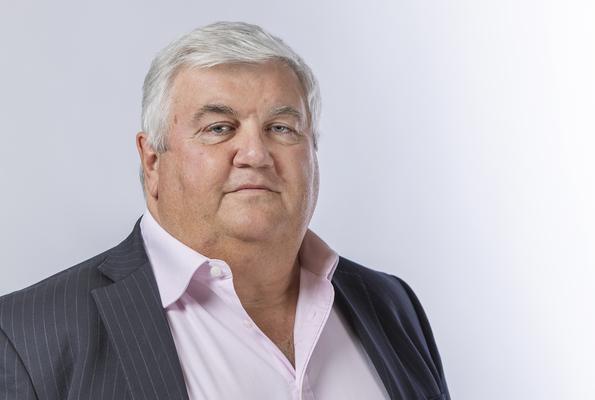UK falls in global rankings for pharmaceutical investment
A recent framework published by the Association of the British Pharmaceutical Industry (ABPI) highlights that the UK is losing ground in key areas such as foreign direct investment and research and development (R&D) within the pharmaceutical sector. The ABPI’s objective was to pinpoint the UK’s strengths and weaknesses, providing data-driven analysis to inform government and industry strategies aimed at enhancing competitiveness. The findings indicate that the UK has declined in global rankings for pharmaceutical investment, with notable reductions in both foreign direct investment and R&D expenditure.
While the report recognises the UK’s robust academic and research infrastructure, including leading universities and research institutes, it emphasises the urgent need to improve the investment environment to restore the UK’s competitive standing. Specific weaknesses identified include: low investment in medicines, for example, the UK currently allocates approximately 9% of its healthcare budget to medicines, compared to 20% in Japan and 14% in Germany; and limited patient access to new treatments, with only 37% of new medicines fully available for their licensed indications, versus 90% in Germany.
On a more positive note, the report identifies areas of potential growth, such as the UK’s health data resources and expertise in artificial intelligence, supported by assets like the UK Biobank. Additionally, UK cell and gene therapy (CGT) companies secured around £200 million in venture capital funding in 2023, facilitating the launch of 47 CGT clinical trials in 2024.
IP challenges when investing in US life sciences
Several sovereign wealth funds, particularly those from the Gulf region have been investing heavily in U.S. life sciences companies. These include: the Qatar Investment Authority (QIA), who have backed Latigo Biotherapeutics' $150 million Series B round; the Mubadala Investment Company, who have backed companies like Outpace Bio, Metsera, and Capstan Therapeutics; and the Abu Dhabi Investment Authority (ADIA), who have participated in Lila Sciences' $200 million seed round. These investments are driven by a long-term strategy to gain exposure to the sector. Drug discovery has become a particularly strong focus for some funds, surpassing other traditional investment sectors like software and fintech.
Sovereign wealth funds entering the U.S. life sciences sector must carefully balance their long-term investment objectives with robust risk management frameworks, ensuring compliance with regulatory requirements, strong governance, effective intellectual property (IP) protection, and an acute awareness of geopolitical factors. Olga Berson of Thompson Coburn LLP highlights IP risk as paramount, given its status as the most valuable asset in biotechnology and pharmaceuticals. Key pitfalls include patent claims that are either too broad to withstand validity challenges or too narrow to offer meaningful commercial value; hidden licensing obligations, such as university royalty requirements, government "march-in" rights, and sublicensing restrictions, which can diminish returns; and ambiguous ownership arising from joint development agreements or consultant contributions.
These risks are especially pronounced for sovereign wealth funds investing in early-stage biotech and venture-style opportunities, where the value of investments is closely tied to the strength and clarity of IP rights. A thorough due diligence process, encompassing assessment of patent scope, review of licences and funding sources, and confirmation of ownership, is essential to safeguard capital and avoid erosion of value. For sovereign wealth funds making significant investments in the U.S. market, rigorous IP due diligence is not merely advisable, but forms the cornerstone of effective investment protection.
The UK as a global gateway for life sciences
London has long served as a gateway for the life sciences sector, hosting over 2,400 companies, world-class research institutions, and a dynamic innovation ecosystem. As a major hub for investment and collaboration, London leverages its deep talent pool, advanced infrastructure, and strategic position within the UK’s “Golden Triangle” to connect global capital with local opportunities. The recent announcement that MSD has withdrawn from its planned £1 billion innovation centre in King’s Cross was a disappointment for the sector and highlighted ongoing challenges in the UK, particularly regarding drug pricing and R&D investment.
However, this development does not necessarily signal a negative outlook for the industry. Microsoft’s recent £30 billion commitment to the UK’s AI sector and Google’s confirmation of a new data centre in Waltham Cross demonstrate continued confidence in the UK’s innovation landscape. These investments in AI and data infrastructure are set to bolster biotech, digital health, and the life sciences SME community. Over the next eight years, more than six million square feet of dedicated lab and life sciences space is expected to be developed in London.
The government’s new Life Sciences Sector Plan provides a framework to address the concerns raised by MSD’s decision, focusing on improving market access, supporting R&D investment, and creating clearer pathways for innovation to reach patients. This plan is intended to reinforce the UK’s position as a global leader in life sciences.
In parallel, Manchester is rapidly emerging as a significant life sciences hub, supported by its strong network of universities, research institutions, and the NHS. The city has particular strengths in precision medicine, genomics, oncology, and is seeing growth in health-tech, advanced materials, and AI. Manchester is actively attracting investment, with recent funding and development projects such as the Upper Brook Street regeneration providing space for sector growth and collaboration. Facilities like Manchester Science Park and Citylabs offer dedicated lab and office space for start-ups, scale-ups, and global companies. Significant government investment has also been directed towards innovation and research, including nearly £5 million for a partnership between the Universities of Manchester and Cambridge. Manchester’s profile is set to rise further following IQVIA’s major investment in the Medicines Evaluation Unit (MEU) in Wythenshawe, a UK leader in early phase clinical trials.
MedTech Europe calls for simplification of legislation for medical devices
MedTech Europe has released a position paper advocating for the alignment and streamlining of EU digital legislation, including the AI Act and the Cybersecurity Act, with existing medtech regulations such as the In Vitro Diagnostic Medical Devices Regulation (IVDR), the Medical Devices Regulation (MDR), and the European Health Data Space (EHDS) Regulation. The European medical technology sector is calling on EU policymakers to adopt a proportionate, sector-specific approach to health data sharing under the EHDS, recognising the particular sensitivity of data generated in healthcare environments and placing patient safety at the forefront, especially in relation to data from connected medical devices.
The position paper stresses the need for sectoral data sharing frameworks to include clear legal definitions and robust safeguards that protect both patients and the capacity of manufacturers to support Europe’s health and digital ambitions. Key recommendations include: postponing the application of the AI Act to medical technologies until August 2029 to provide additional time for industry and regulators to achieve alignment; exempting medical technologies from the broad raw data provisions of the Data Act to avoid misinterpretation, enhance patient safety, and maintain high data security standards; and retaining voluntary certification under the Cybersecurity Act, rather than introducing mandatory requirements.
Overall, the paper calls for an integrated regulatory framework that avoids duplicative requirements and places innovation, safety, and responsible data stewardship at its core.
WHO backs weight-loss drugs, and urges cheap generics
The World Health Organization (WHO) is calling for the production of affordable generic versions of widely used weight-loss drugs, including those containing semaglutide and tirzepatide, to enhance global access. By adding these medications to its list of essential medicines, the WHO aims to encourage generic competition and drive down the high prices currently associated with branded drugs such as Ozempic and Mounjaro, which remain out of reach for many patients worldwide.
The agency has highlighted that generic versions could be mass-produced at a significantly lower monthly cost, with research indicating that semaglutide could be manufactured for as little as USD 4 per month. The move is particularly focused on improving access in developing countries, where affordability is a major barrier. The upcoming expiration of patents on some of these drugs in certain jurisdictions, such as Canada, India, and China, is expected to further facilitate generic production. Through this initiative, the WHO seeks to ensure that these vital treatments are accessible to those most in need, addressing the escalating global challenge of obesity and related health conditions.
ABPI urges reform of UK medicines investment environment
David Watson, Executive Director of Patient Access at the Association of the British Pharmaceutical Industry (ABPI), is calling on the UK government to reform the medicines system to enable faster patient access to new treatments and enhance the UK’s appeal as a destination for pharmaceutical investment. Mr Watson has specifically raised concerns regarding the current Voluntary Scheme for Branded Medicines Pricing, Access and Growth (VPAG), urging revisions to the agreement, including changes to the payment rates returned to the government.
He is also advocating for reforms to the Medicines and Healthcare products Regulatory Agency (MHRA), recommending a more flexible regulatory framework, as well as a review of NICE’s cost-effectiveness threshold. According to Mr Watson, patient access to new medicines in the UK lags behind countries such as France and Germany, therefore he stresses the importance of creating an environment that encourages pharmaceutical investment and research and development, to ensure the UK remains competitive in launching new medical innovations.
Further reading





